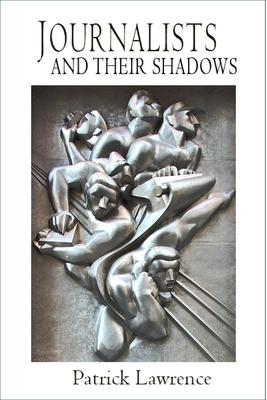
As a result, the mainstream American media have entered into a period of profound transformation, in the course of which independent media are emerging as the profession's most dynamic sector--and represent, indeed, the promise of a brilliant future.
A weave of three elements, Lawrence's book offers a searing cultural and political critique, punctuated by the kind of piquant detail only insiders can provide. He also makes the case for a way forward--an optimistic case based on the vitality now apparent among independent media. Here, too, he is at home, providing the book's most original coverage of this brave new world. He draws upon many years in the profession, a multitude of mainstream outlets ranging from his decades as foreign correspondent for the venerable International Herald Tribune to his work now as a columnist for a similar wide range of alternative news outlets such as Counterpunch, Consortium News et al.
Shadows probes the psychological dilemma that must be understood if we are to address the current crisis. Journalists in our time are divided within themselves--driven to meet thoroughly professional but ideologically conformist standards, but on the other, subliminally struggling to breach the barriers that preclude the truths they know should be conveyed. This latter, as Jung has put it, is the journalist's shadow. Shadows' case for the reintegration of the divided journalist is striking and original.
This record of the American media's increasingly shabby betrayal of the public trust sheds light on why the American public thought and thinks the way it does, how it has become aware that the truth it seeks is absent, and where and how it may yet be able to ferret it out. Here is a guide to the future, in fact, of journalism itself
As a result, the mainstream American media have entered into a period of profound transformation, in the course of which independent media are emerging as the profession's most dynamic sector--and represent, indeed, the promise of a brilliant future.
A weave of three elements, Lawrence's book offers a searing cultural and political critique, punctuated by the kind of piquant detail only insiders can provide. He also makes the case for a way forward--an optimistic case based on the vitality now apparent among independent media. Here, too, he is at home, providing the book's most original coverage of this brave new world. He draws upon many years in the profession, a multitude of mainstream outlets ranging from his decades as foreign correspondent for the venerable International Herald Tribune to his work now as a columnist for a similar wide range of alternative news outlets such as Counterpunch, Consortium News et al.
Shadows probes the psychological dilemma that must be understood if we are to address the current crisis. Journalists in our time are divided within themselves--driven to meet thoroughly professional but ideologically conformist standards, but on the other, subliminally struggling to breach the barriers that preclude the truths they know should be conveyed. This latter, as Jung has put it, is the journalist's shadow. Shadows' case for the reintegration of the divided journalist is striking and original.
This record of the American media's increasingly shabby betrayal of the public trust sheds light on why the American public thought and thinks the way it does, how it has become aware that the truth it seeks is absent, and where and how it may yet be able to ferret it out. Here is a guide to the future, in fact, of journalism itself
Paperback
$27.95